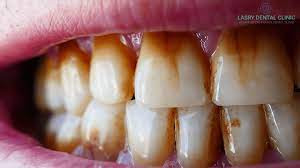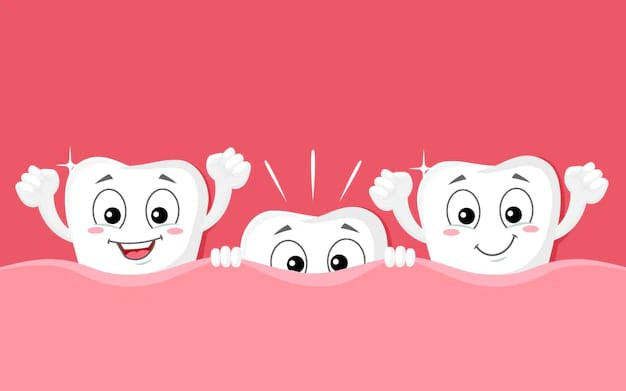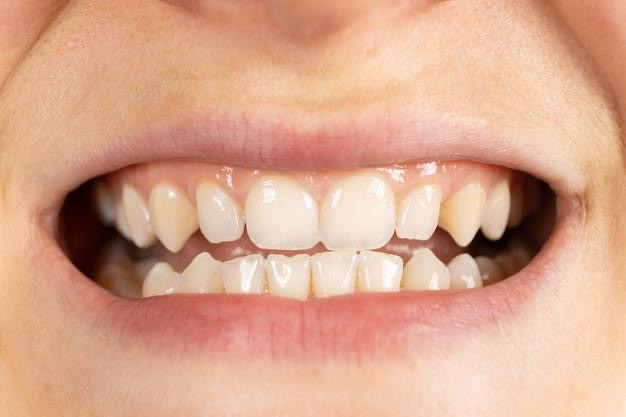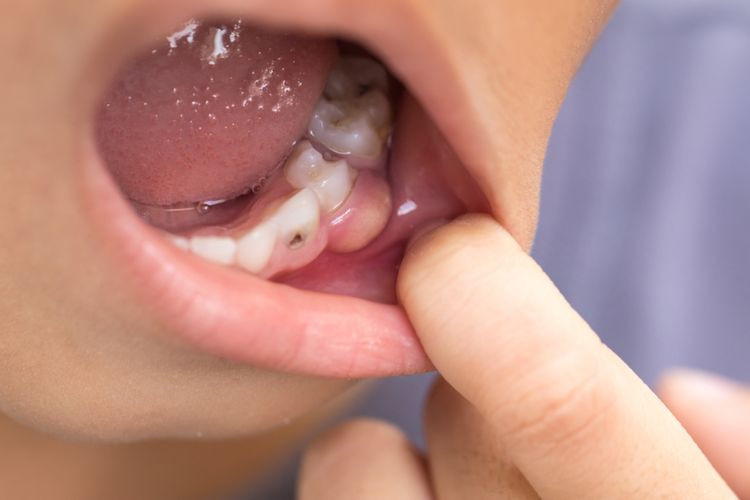Definition
Tooth discoloration refers to changes in the color of your teeth. The teeth, which were initially white, gradually lost their brightness. Teeth may change color, resulting in a deeper shade or the appearance of stain-like patches.
Causes
Several lifestyle factors can cause tooth discoloration, including:
- Food or drink
Various beverages and meals, including coffee, tea, soda, apples, blueberries, wine, and certain foods high in carbohydrates, such as potatoes and pasta, can cause tooth discolouration.
- Smoking
The incidence rate of tooth discoloration is reported to be higher among smokers, which indicates that smoking is one of the primary causes of tooth discoloration.
The following dental problems can also cause tooth discoloration, including:
- Poor oral hygiene
Not brushing or flossing might cause plaque on your teeth. In addition, if you do not visit your dentist for regular dental cleanings, you may experience changes in the color of your teeth.
- Health problems
Enamel and dentin disorders, medical treatments, including radiation therapy for the head and neck, and chemotherapy can also cause tooth discolouration. Pregnant women with certain diseases may affect the development of tooth enamel in their babies, which can result in changes to the color of their teeth.
- Medications
Liquid iron supplements and antibiotics like tetracycline and doxycycline can impact children's tooth enamel. There is also the possibility of stained teeth if you use mouthwash that contains chlorhexidine and CPC. Other medications, such as antihistamines (like diphenhydramine), antipsychotics, and antihypertensive drugs, are also causing discoloration of the teeth.
- Materials for the teeth
Certain amalgam repair materials, particularly those that contain silver sulfide, have the potential to discolor your teeth to a blackish or grey color.
Risk factor
Certain factors, such as age, genetics, or injuries at a young age, may disturb the formation of your dental enamel.
- Aging
As you age, the outer layer of tooth enamel gradually disappears, revealing the underlying yellow dentin layer. Age-related dentin growth also reduces the size of the tooth pulp, which might impact the color of your teeth, resulting in a darker appearance.
- Genetic factors
There are specific individuals born with thinner covers of enamel.
- Injury
Accidents and exercise can cause mouth injuries. In children under eight years old, the injury may disrupt enamel production. In addition, injuries can cause tooth discoloration in adults if the damage reduces the amount of blood that flows to the tooth or nerves.
- Environment
Too much fluoride applied to the teeth or excessive fluoride levels in the water during tooth development can cause fluorosis. This may result in white patches on the teeth.
Symptoms
Tooth discoloration refers to a diminished whiteness or brightness of the teeth. Your teeth may turn yellow, brown, black, or purple or have brown, white, or black tooth stains.
Diagnosis
Tooth discoloration is observable during a dental examination. To determine the underlying cause, the dentist will also inquire about your personal and familial medical history and conduct a thorough examination. The dentist will diagnose whether the condition you are experiencing results from lifestyle factors or another health problem.
Management
There is a range of treatment options available for teeth whitening; however, it is important to note that not all procedures are good for everyone.
The dentist will decide the treatment protocols according to the type of discoloration or spots on the teeth and the degree of discoloration. As the Food and Drug Administration (FDA) in the United States has not yet approved whitening products, you must consult your dentist before using teeth-whitening products.
It is important to note that dental restorations, such as veneers, crowns, dentures, or implants, cannot be whitened due to their composition of artificial materials, typically porcelain. Whitening can only be done on the natural tooth enamel layer, and it is only effective if the underlying cause of tooth discoloration is reversible. Once the reason for tooth discoloration is identified, your dentist may suggest one or more of the options below:
Self-help at home
- Avoid tea, coffee, and alcohol.
- Apply whitening adhesive patch strips.
- Brush and floss your teeth daily to maintain oral hygiene.
Professional Whitening
A whitening procedure is conducted in a clinical setting by a dentist using particular whitening materials and techniques. Some procedures include the use of specific solutions, the application of heat using a particular lamp, or the use of a higher concentration of bleach.
- Dental bonding is a dental procedure that involves applying a white resin to the tooth and using a specialized light to solidify it. This light adheres the resin to the teeth, improving their color.
- Dental crowns are placed on teeth to protect, cover, and cure tooth decay. They can also whiten teeth. Your dentist will customize the crown's shade to align with your teeth's natural color.
- Dental veneers are ceramic coverings specifically crafted to enhance the appearance of your smile by concealing the front surface of your teeth. When opting for veneers, your doctor will caution you to avoid biting on hard foods with your front teeth to prevent any potential veneer damage.
Complications
Tooth discoloration is a non-threatening disorder that typically does not result in severe complications. However, in cases where the tooth is damaged due to trauma or injury, issues may arise, such as the pulp (tooth root) dying.
Prevention
Maintaining oral hygiene is beneficial for dental health. By implementing modifications to your lifestyle, especially smoking, you can effectively prevent tooth discoloration. If you drink coffee, consider finding an alternative drink. Improve your dental hygiene by brushing and flossing daily and visiting the dentist every six months.
When to see a doctor?
Consult a dentist if the color of your teeth appears abnormal and persists despite good oral hygiene or if you experience additional symptoms. Before you decide to whiten your teeth, it's wise to consult your dentist. Even though most people whiten their teeth for aesthetic reasons, your dentist can help you choose the best solution for discoloration.
Looking for more information about other diseases? Click here!
- dr Hanifa Rahma
Tooth discoloration: Causes, treatment & prevention (2020) Cleveland Clinic. Available at: https://my.clevelandclinic.org/health/diseases/10958-tooth-discoloration (Accessed: March 7, 2023).
Yellow teeth and other discoloration: Causes and treatments (2020) WebMD. WebMD. Available at: https://www.webmd.com/oral-health/guide/tooth-discoloration (Accessed: March 7, 2023).
Lindberg, S. (2020) Tooth discoloration: Causes, prevention, how to remove stains, Healthline. Healthline Media. Available at: https://www.healthline.com/health/tooth-discoloration (Accessed: March 7, 2023).












